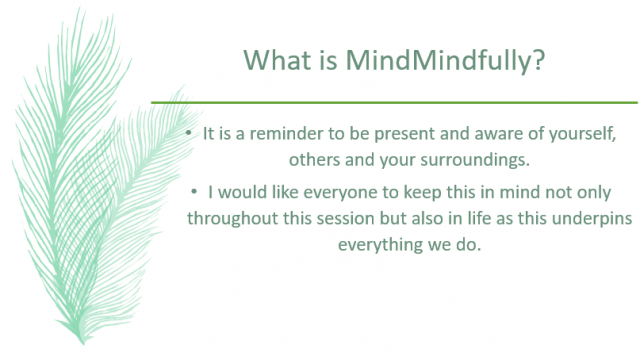Mental health education should form part of the national curriculum, I believe lessons and workshops in this area should be given equal if not more importance than core subjects such as maths and science. Raising awareness, reducing stigma and supporting our young people’s mental health should be a priority as it will have a positive impact on every aspect of their school experience and in later life.
Over a span of 6 weeks I delivered MindMindfully mental health workshops to students in secondary education (ESO – 4th Grade, 3 separate groups) and Bachillerato (1st year).
The timing of the workshops couldn’t have been better, the students had just begun their exams and were experiencing high levels of stress and pressure. The workshops gave them time and space away from their books which acted as a mental break. And it proved necessary as a huge proportion of the students expressed feeling extremely overwhelmed but enjoyed the different nature of workshops and it allowed them to relax.
Workshop 1: An introduction to Mental health

The first three sessions established the students thoughts about mental health and what it meant to them. At the start of each workshop I made it known that sensitive topics will be discussed which may induce feelings of discomfort; verbal consent was given before proceeding with the workshops.
Each student completed The Perceived Stress Scale (PSS), (Cohen et al.1983). The PSS is the most widely used psychological instrument for measuring the perception of stress. It is a measure of the degree to which situations in one’s life are appraised as stressful. Items were designed to tap how unpredictable, uncontrollable, and overloaded respondents find their lives.
You can find the interactive questionnaire here: https://www.bemindfulonline.com/test-your-stress
This measurement was delivered twice, firstly for the students to think about how they are feeling and to gain a general idea of their own perception of stress. The same measurement was then delivered again, to compare their perception of stress once we had reached the end of the six weeks.
The workshops involved open discussion, debates, personal reflection, group and pair work, the use of anecdotes and sharing personal experiences as well as hearing the views of other students in a similar position to them when watching videos. Although I led the workshops, the main teacher was also involved and shared personal anecdotes, encouraged participation as well as helped with general class management.
The first workshop: Introduction to Mental Health was delivered across three weeks, it was important to give the students time to express themselves during the group discussions, pair and individual work.
With that said, the original timings of the workshop were as follows:
- Introduction: 5 mins
- Activity 1: What is Mental Health? 10 mins
- Activity 2: Mental Health Myth Buster 15 mins
- Activity 3: The Reasons Why People May Not Talk About Their Mental Health? 5 mins
- Activity 4: The Mental Health Continuum 10 mins
- Activity 5: Covid-19 Pandemic video and It’s Impact on Mental Health 10 mins
- Activity 6: Ways to Promote Positive Mental Health 10 mins
During the Mindfulness workshop the class engaged in two group meditations, the first being a guided and then a non-guided meditation. I played a guided meditation at the start of the lesson to set the tone for the class before focusing on the workshop content. We then closed the session with a shorter non-guided meditation which was a way for us to conclude the past six weeks and for the students to feel a sense of calm prior to their subsequent lesson.
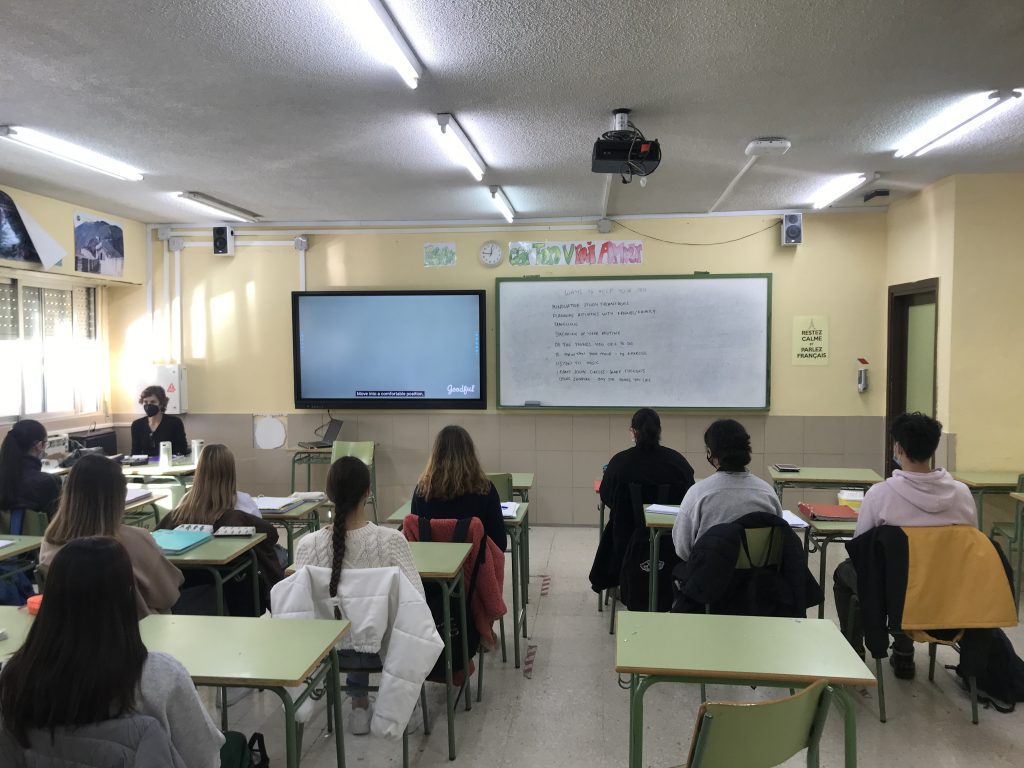
At the very end of the session I asked the students to reflect and provide feedback on how they felt during the meditations; as well as overall feedback from across the six weeks.
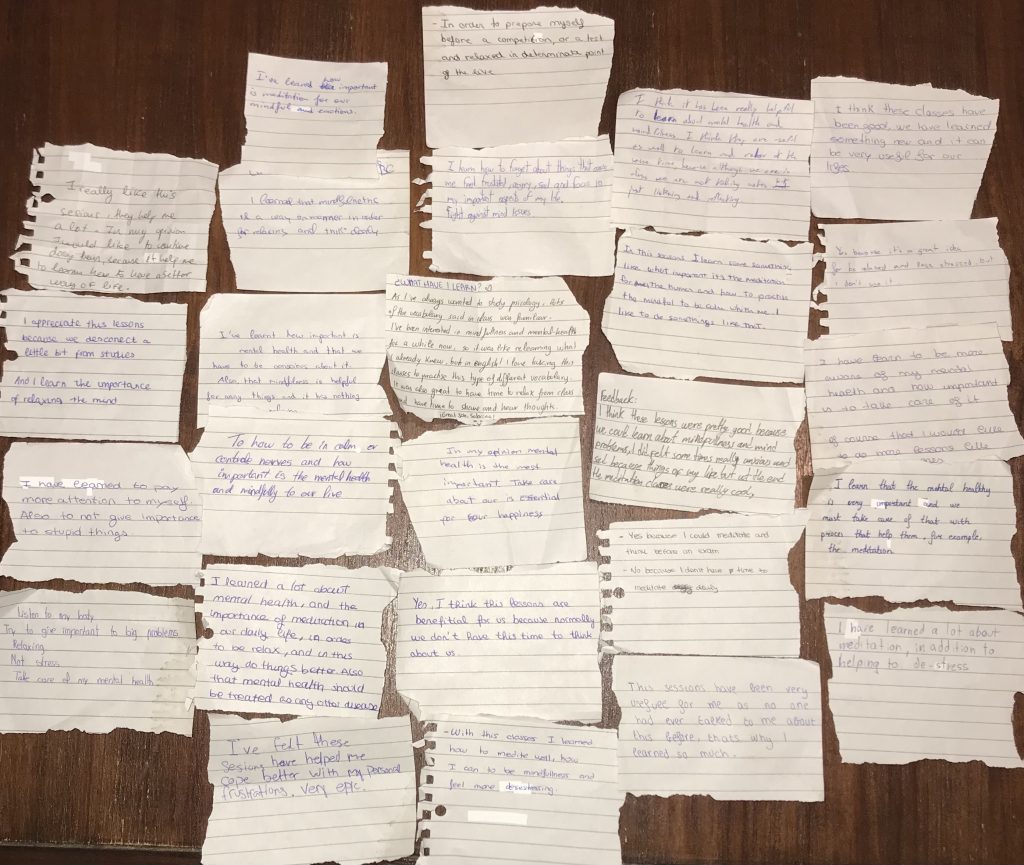
Each week I looked forward to delivering the workshops, it was great to engage and learn more about the students. It was evident that they felt more comfortable and grew in confidence week by week. I was amazed by the students ability to articulate and express themselves, they were open and honest and displayed great maturity when sharing their thoughts and feelings in the presence of their peers. The workshops revealed significant findings and in response, the head of English and I have collaborated to provide a drop in session once a week whereby students who feel as though they need to talk to someone can do so.
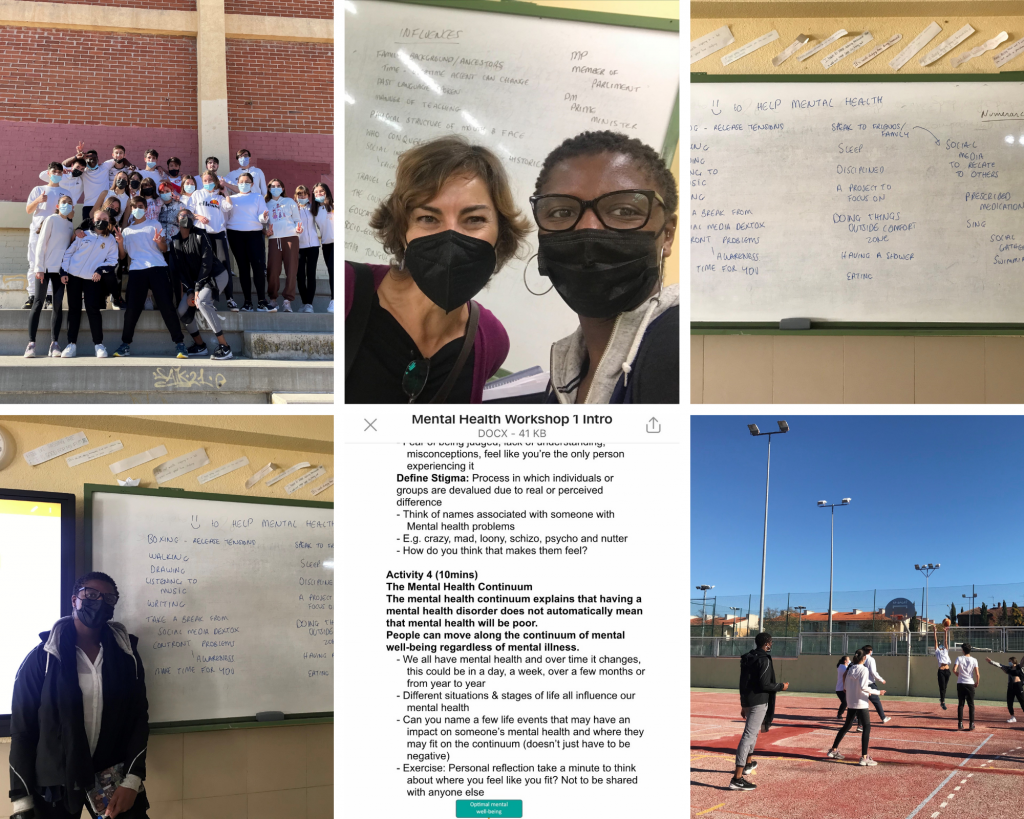
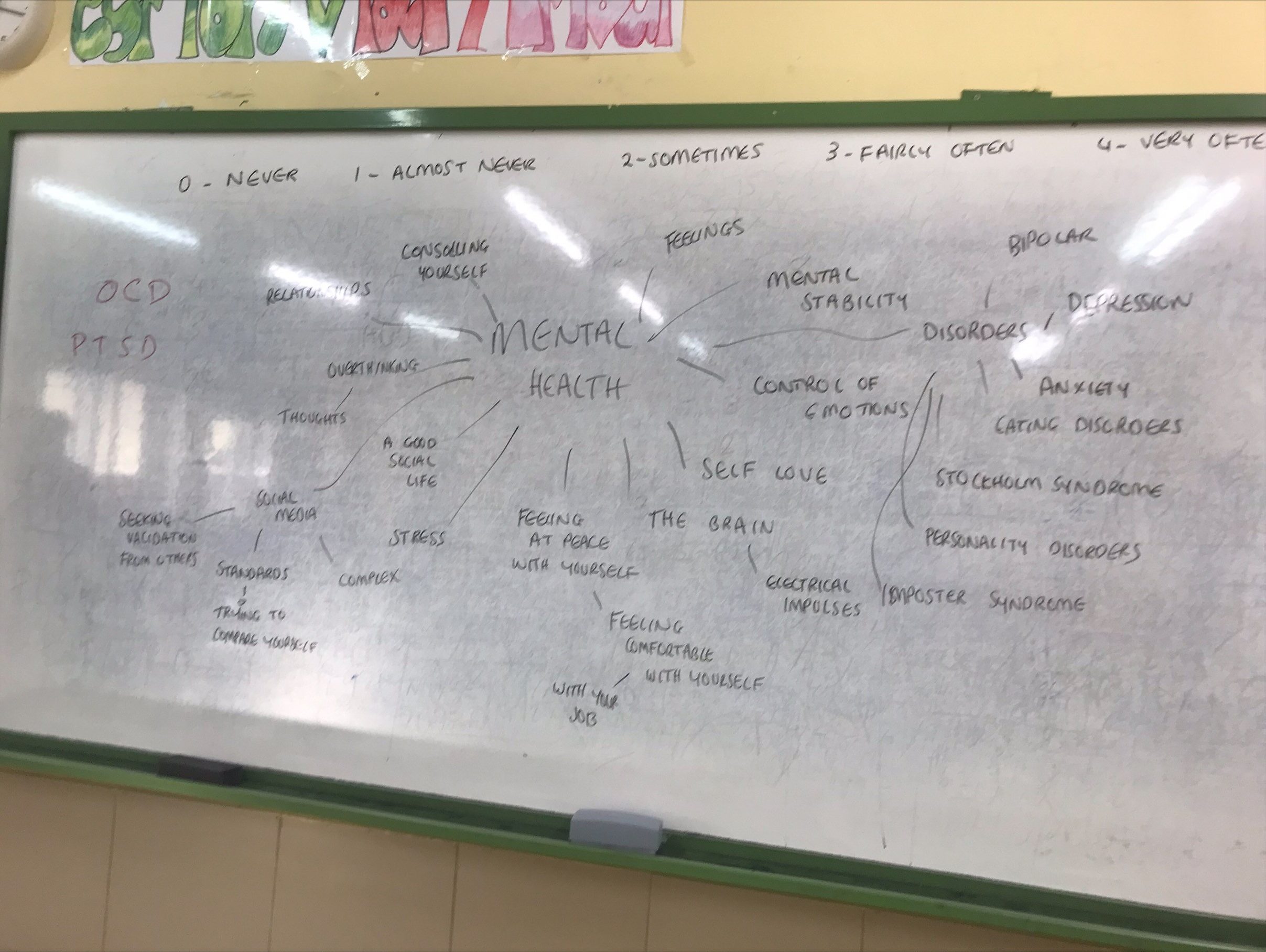
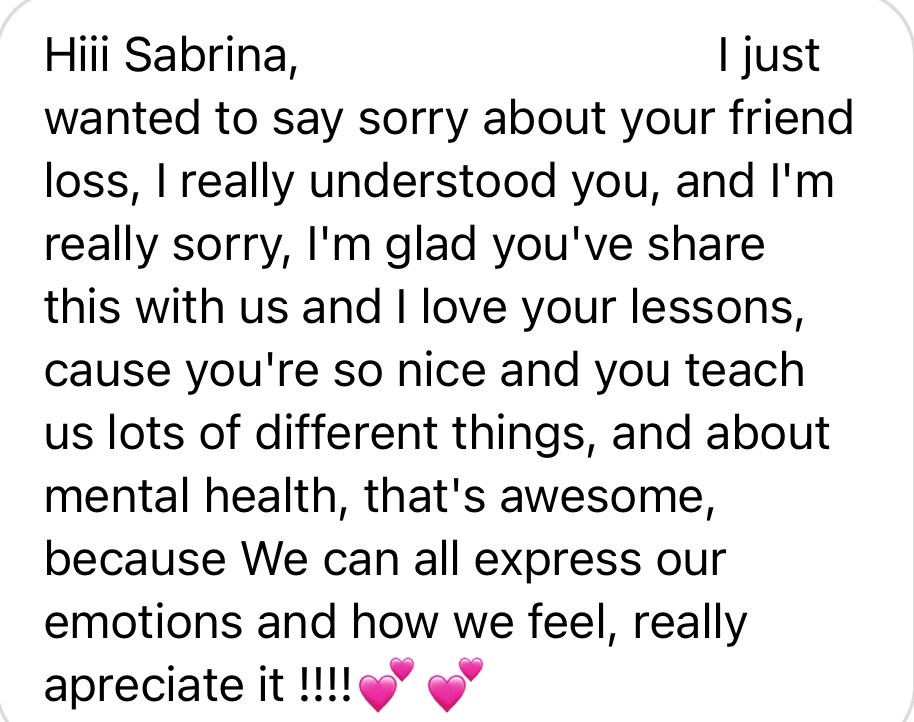
References
Cohen, S., Kamarck, T., & Mermelstein, R. (1983). A global measure of perceived stress. Journal of health and social behavior, 385-396.
Wellmind Health. Be Mindful is owned and operated by Wellmind Health Ltd. A company registered in England & Wales

This work is licensed under a Creative Commons Attribution-NonCommercial-ShareAlike 4.0 International License.
